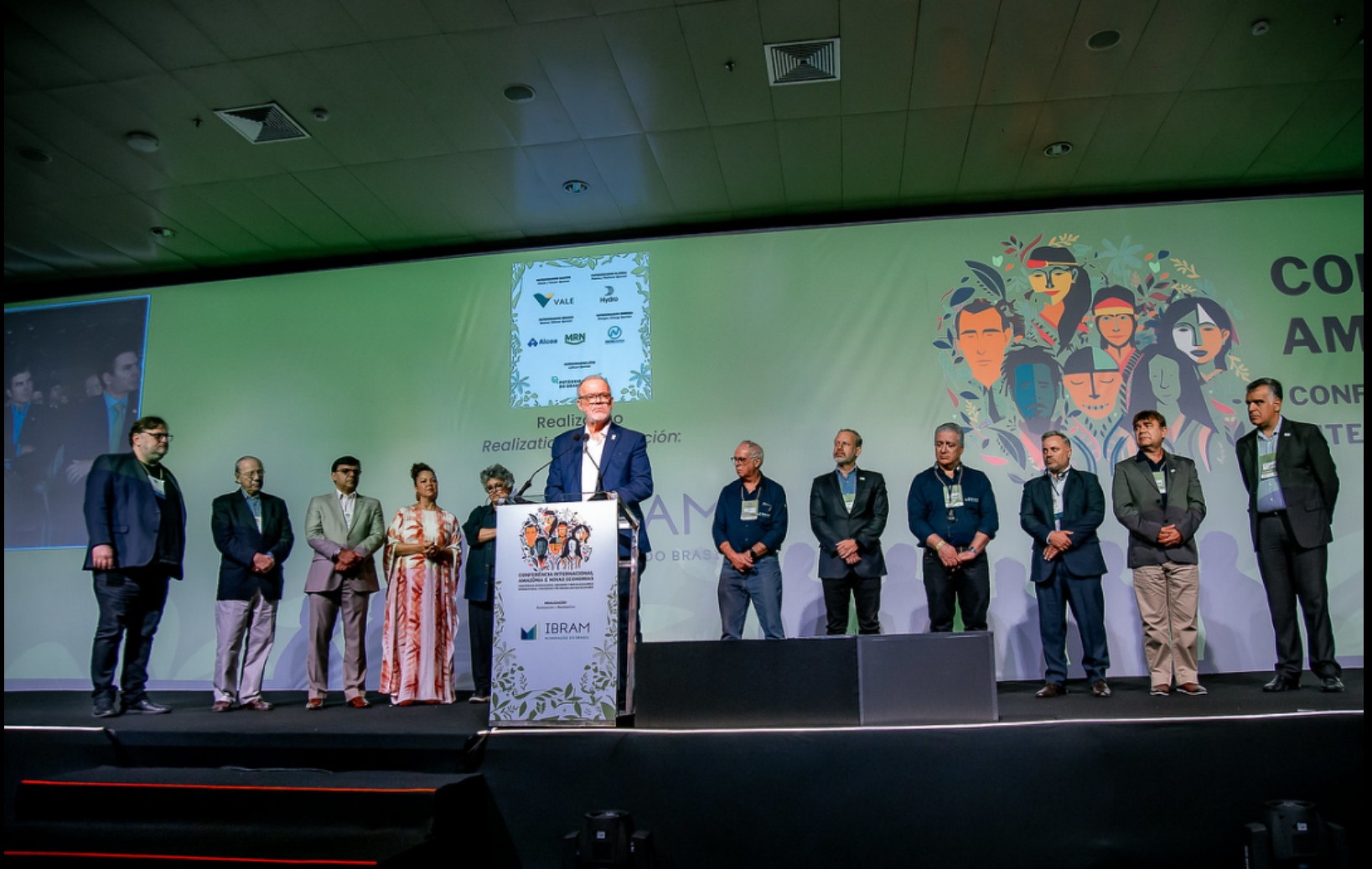IBRAM announces the 2nd International Conference on the Amazon and New Economies

At the closing ceremony, the mineral sector reaffirmed its commitment to sustainable development in the region
The Amazon and New Economies International Conference came to an end this Friday (01), in Belém (PA), with news that was greatly celebrated by the event participants: the second edition of the Conference will be held in 2024. The announcement was made by the CEO of the Brazilian Mining Institute (IBRAM), Raul Jungmann, during the closing ceremony.
Excited, Jungmann said that the decision to hold the Conference arose from the idea that it was necessary to embrace the Amazon. “It is not enough to do business, think about productivity and everything else that makes an economic activity exist. At a time when we are all living with the climate crisis, no one can be left out. There’s no point in having the best financial results if we don’t take care of our home.”
The president director of IBRAM also reinforced the public commitment to the living forest, respect for traditional peoples and communities and the reduction of inequality.
The ceremony was also attended by Justice Gilmar Mendes, from the Federal Supreme Court (STF), and Minister Jader Filho, from the Ministry of Cities, and the former Minister of the Environment, Izabella Teixeira.
When highlighting the “challenging task of seeking strategies for the sustainable development of the Amazon”, Gilmar Mendes pointed out as progress the recent decision of the STF to suspend the presumption of legality in the gold trade. “The simplification of the gold purchasing process caused a reduction in supervision of purchase and sale operations, weakening the chain and causing damage to the environment, health and safety of the region’s population, as well as the mining sector.”
A native of Pará and knowledgeable about the Amazonian reality, Minister Jader Filho highlighted the federal government’s commitment to tackling the climate crisis. “We are not going to escape responsibility, but we want to understand whether rich countries know what their responsibility is in this confrontation. We have heard many promises, but when will they come true?”
The minister also highlighted the existence of 30 million inhabitants of the Brazilian Amazon, “people who want quality jobs and cities that offer quality of life”. According to the minister, “it is necessary to understand that the solution involves the people who live here, and that the majority of them live in the city”.
Former minister Izabella Teixeira celebrated the event in the capital of Pará. “Brazil doesn’t know Brazil. Holding a conference like this here means projecting not only the Amazon, but Brazil for Brazil.” She also celebrated the success of the event. “Many people didn’t believe it would work and disembarked, but many more people embarked. The debates were very rich and the results are impressive”.
The last speech of the Conference was made by the host, the governor of Pará, Helder Barbalho. “The photography of this event demonstrates a paradigm shift. For the first time, mining, not in isolation, but collectively, dialogues and builds. The sector seeks to open itself to dialogue with society and embraces the role of promoting strategies and initiatives that can build economic solutions for the Amazon.”
Finally, Barbalho stated that it is no longer possible to accept that Pará, with great relevance for the construction of the Brazilian GDP, continues to face so many social challenges. “We need to reconcile economic and natural wealth with social wealth, and bioeconomy can be the way to achieve this.”
About the Conference
The Amazon and New Economies International Conference is promoted by the Brazilian Mining Institute (IBRAM), a non-profit organization that brings together more than 130 companies and institutions that work in the Mineral sector and are committed to protecting the Amazon. IBRAM and its members are committed to innovations in the sector and to disseminating the best business and environmental practices.
The event brings together representatives of the peoples of the forest, civil society, academia, the public and private sectors in the capital of Pará to address issues involving the environment, the economy and sustainable development.
Follow the Conference on social media

